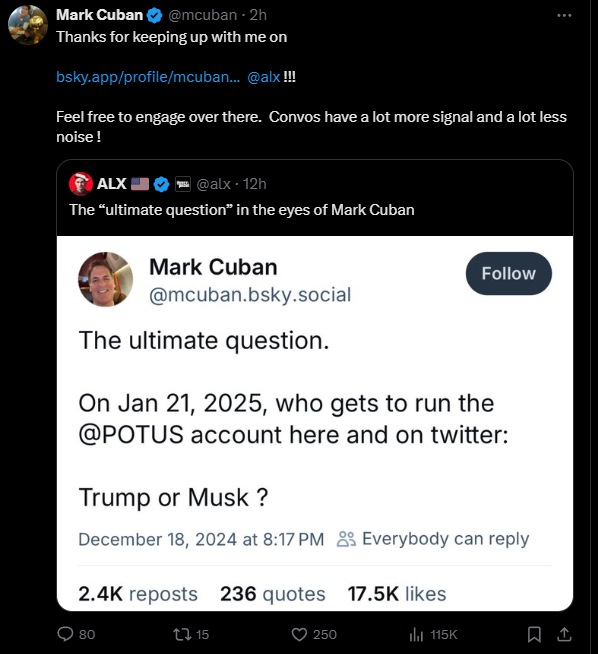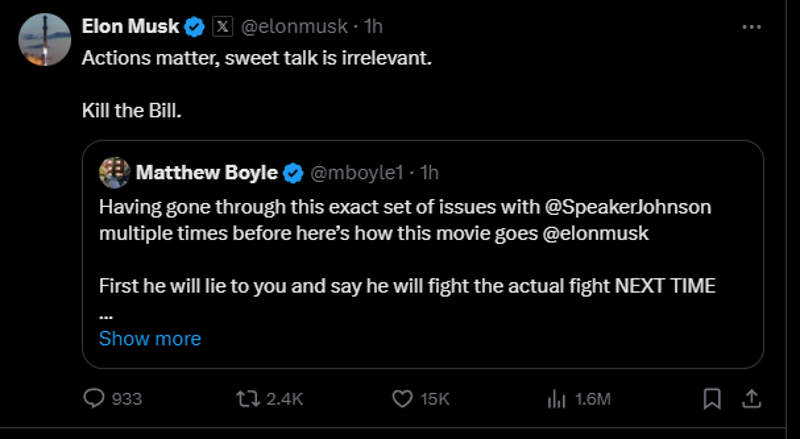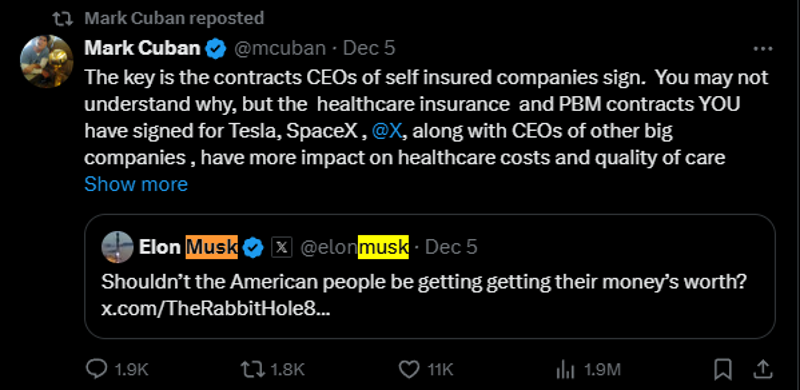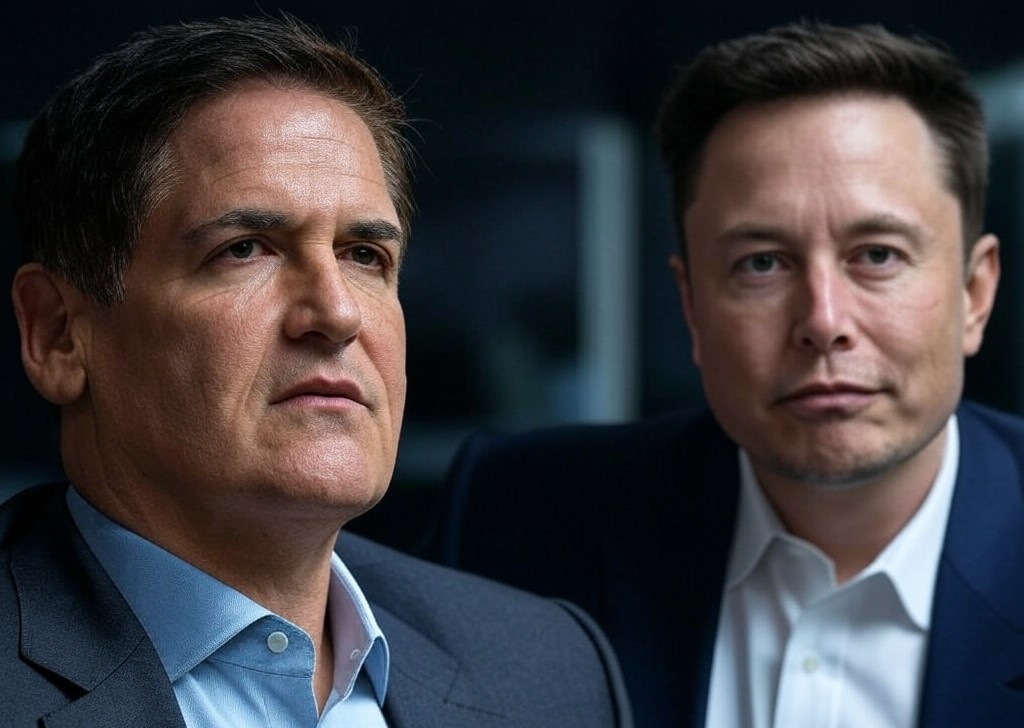Two billionaires, two vastly different approaches to influence. Elon Musk and Mark Cuban, both powerful figures in technology and business, are making waves—but in starkly contrasting ways. While Musk uses his platform to shape political outcomes and question societal norms, Cuban wields his influence to challenge power dynamics and highlight systemic flaws. Their recent exchanges, particularly Cuban’s trolling of Musk on Bluesky, underscore their differing strategies and the broader implications for politics, healthcare, and society.

Cuban’s humor-packed post on Bluesky—“On Jan 21, 2025, who gets to run the @POTUS account here and on Twitter: Trump or Musk?”—reflects this dynamic. What seems like a lighthearted jab carries deeper critiques of Musk’s growing influence in politics. The comment comes in the wake of Musk’s role in helping derail a bipartisan short-term spending bill designed to prevent a government shutdown.

Musk, aligning with President-elect Donald Trump, amplified opposition to the bill on X (formerly Twitter), throwing Washington into turmoil and highlighting the increasing power of tech moguls over public policy.

Beyond politics, Cuban has also called out Musk on healthcare. While Musk recently questioned whether Americans are “getting their money’s worth” in healthcare, Cuban redirected the conversation to costs. He argued that CEO’s of companies like Tesla, SpaceX, and X may unknowingly contribute to rising healthcare expenses through poorly negotiated contracts with Pharmacy Benefit Managers (PBMs). Cuban criticized the inefficiencies in the system that drive up prices, trapping Americans in a costly and opaque healthcare structure.

Cuban’s decision to use Bluesky—a rival to Musk’s X—for his critique is no accident. It symbolizes resistance to Musk’s dominance and serves as a platform for alternative viewpoints. His post is more than just witty commentary; it highlights the blurred lines between tech power, political influence, and social responsibility. As Musk and Trump continue to reshape America’s political and social landscapes, Cuban’s voice stands out as a call to scrutinize and challenge this new concentration of power.





